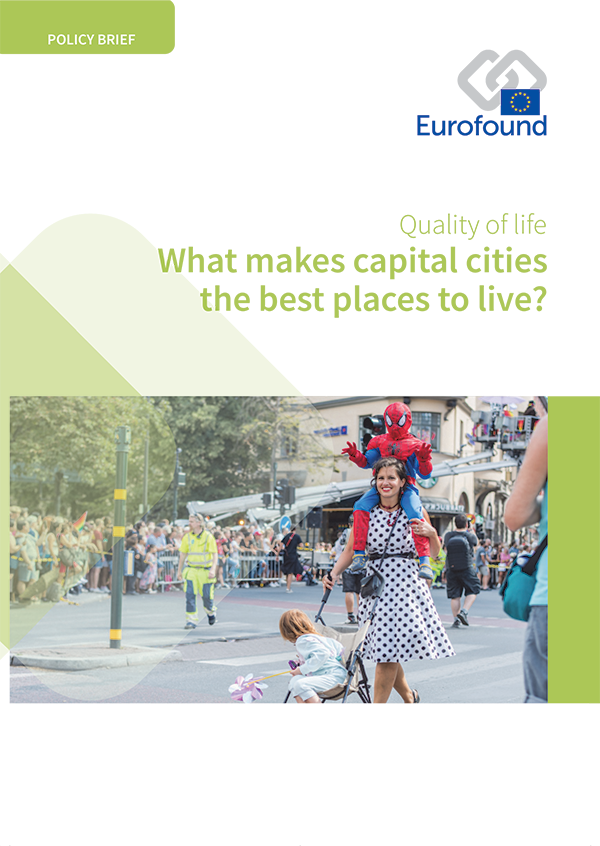
Les données sur la qualité de vie montrent que, dans la plupart des pays, la capitale présente des atouts par rapport aux régions situées en dehors de la capitale. Compte tenu de la croissance continue de la population des capitales et de la concentration des ressources en leur sein, cette note d’orientation explore les fondements des atouts des capitales en matière de qualité de vie. Ces atouts sont-ils principalement liés aux caractéristiques des populations spécifiques que ces villes entretiennent et attirent ? Ou bien proviennent-ils des perspectives offertes par les grandes villes en raison de leur taille et de leur croissance économique ? La présente note d’orientation vise à clarifier les raisons pour lesquelles la politique devrait se concentrer à la fois sur l’économie et sur la société lorsqu’il s’agit de faire progresser la cohésion économique, sociale et territoriale.
Key findings
In Europe, people living in the capital city generally have a better quality of life than people living in other parts of a country. On this basis, it seems that capital cities are indeed the best places to live.
For most countries, residents of the capital city score higher on life satisfaction on average than people living outside the capital.
Life satisfaction in a capital city for the most part is closer to the national average than to the averages of other capital cities. This finding suggests that, despite concerns that capitals increasingly operate independently of their nations, national-level factors are still important in shaping differences in well-being both between countries and between capital cities.
Capital cities have, by and large, larger proportions of people who report feeling resilient – able to cope during times of hardship – compared to other urban centres and rural regions in the same country. Some characteristics of city populations – such as a younger age profile and higher educational attainment – contribute to resilience, while others, such as housing insecurity, erode it. The findings suggest that some other latent factor, possibly related to opportunities for economic advancement and improving one’s living standards, could underlie the extra resilience that capital cities provide.
Capital city residents tend to be more satisfied with how democracy works in their country compared to the population outside the capital. This difference is largely associated with socioeconomic background, which on average is more advantageous in capital cities. Capital city residents also tend to have greater trust in national institutions and be more critical of local or municipal authorities than people in the rest of the country.
Tables
- Table 1: Selected indicators of quality of life – Capital cities and rest of country compared, 2016
Figures
- Figure 1: Life satisfaction scores: Capital cities compared to the rest of the country, 2016
- Figure 2: Low resilience (%): Capital cities compared to the rest of the country, 2016
- Figure 3: Factors behind likelihood of low resilience
- Figure 4: Satisfaction with democracy: Capital cities compared to the rest of the country, 2016
- Figure 5: Trust in national institutions and local authorities: Capital cities, other urban areas and rural areas compared, 2016
- Figure 6: Factors affecting satisfaction with democracy
- Figure 7: Factors affecting average rating of quality of public services
- Figure 8: Average daily commuting time (minutes): Capital cities compared to the rest of the country, 2016
- Figure 9: Housing insecurity (%): Capital cities compared to the rest of the country, 2016
- Number of pages
-
28
- Reference nº
-
EF18025
- ISBN
-
978-92-897-2055-7
- Catalogue nº
-
TJ-AR-20-001-FR-N
- DOI
-
10.2806/199086
- Permalink
Cite this publication
